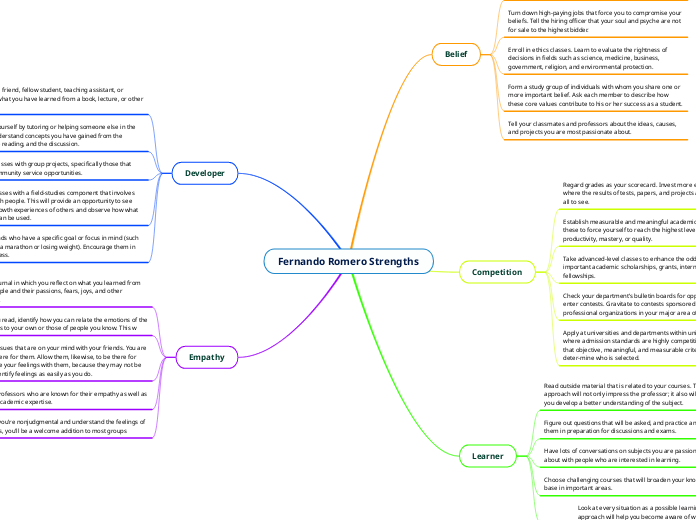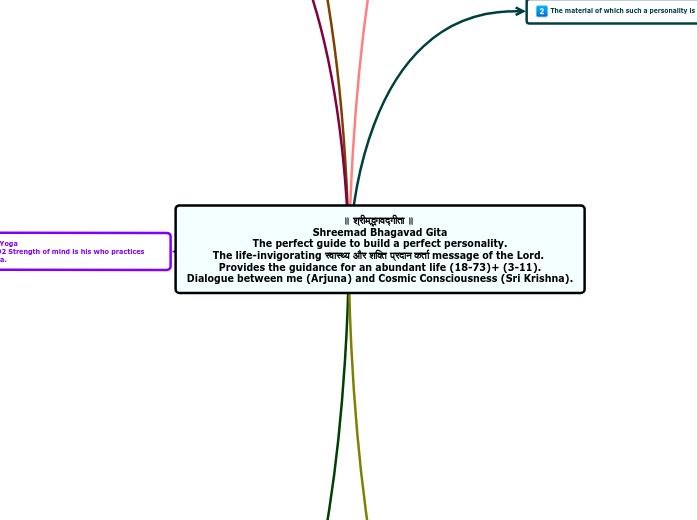realizată de FERNANDO ROMERI 2 ani în urmă
147
Fernando Romero Strengths
Fernando Romero is known for his strengths in empathy, belief, and competition. With empathy, he is encouraged to connect with professors who share this trait and to reflect on the emotions of others through journaling and reading.









